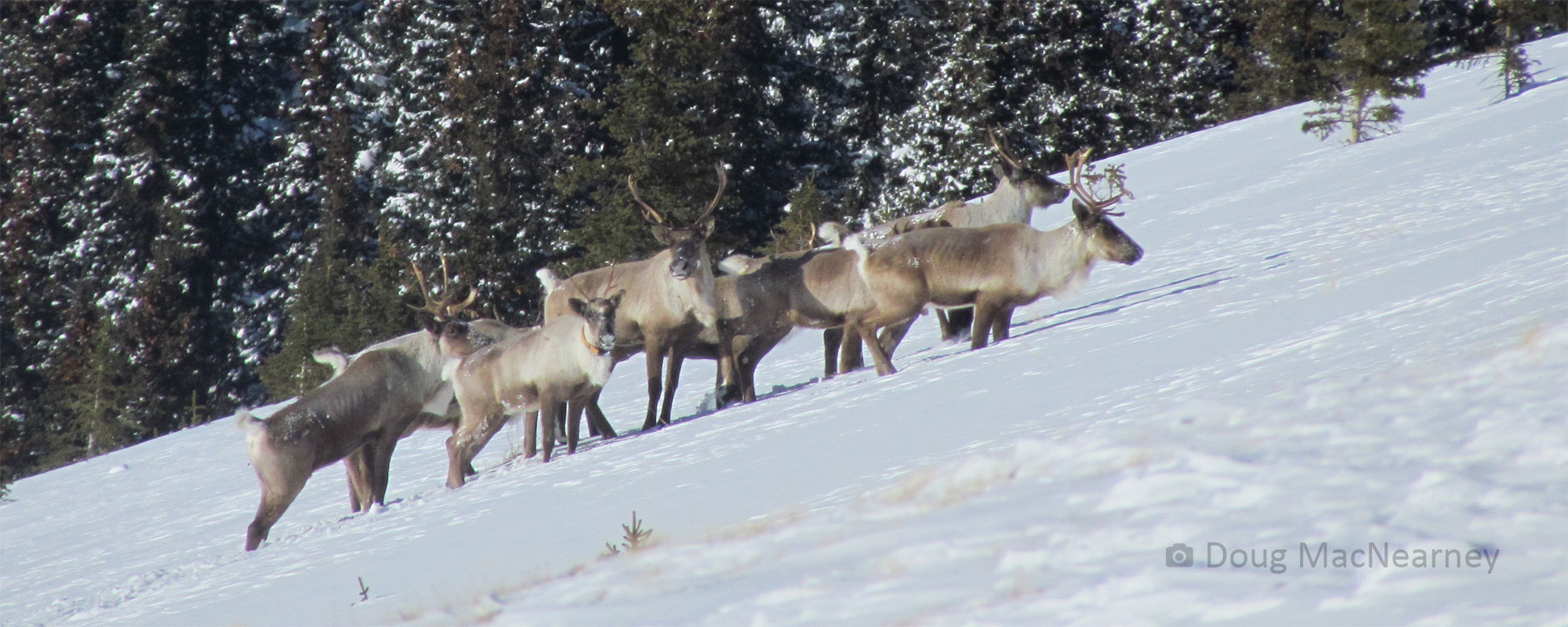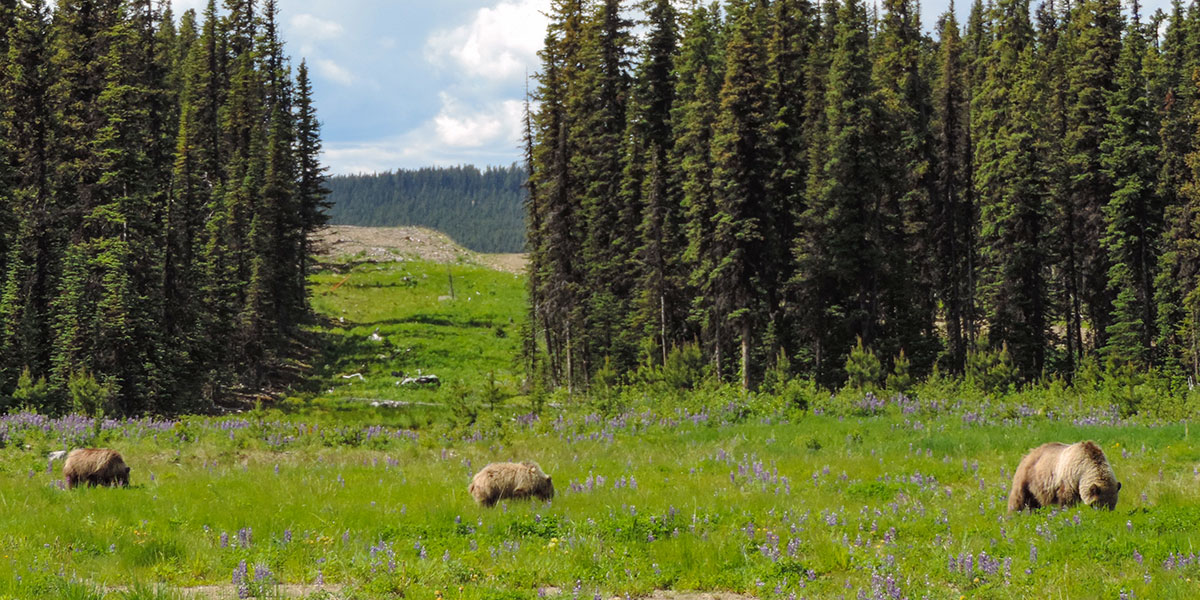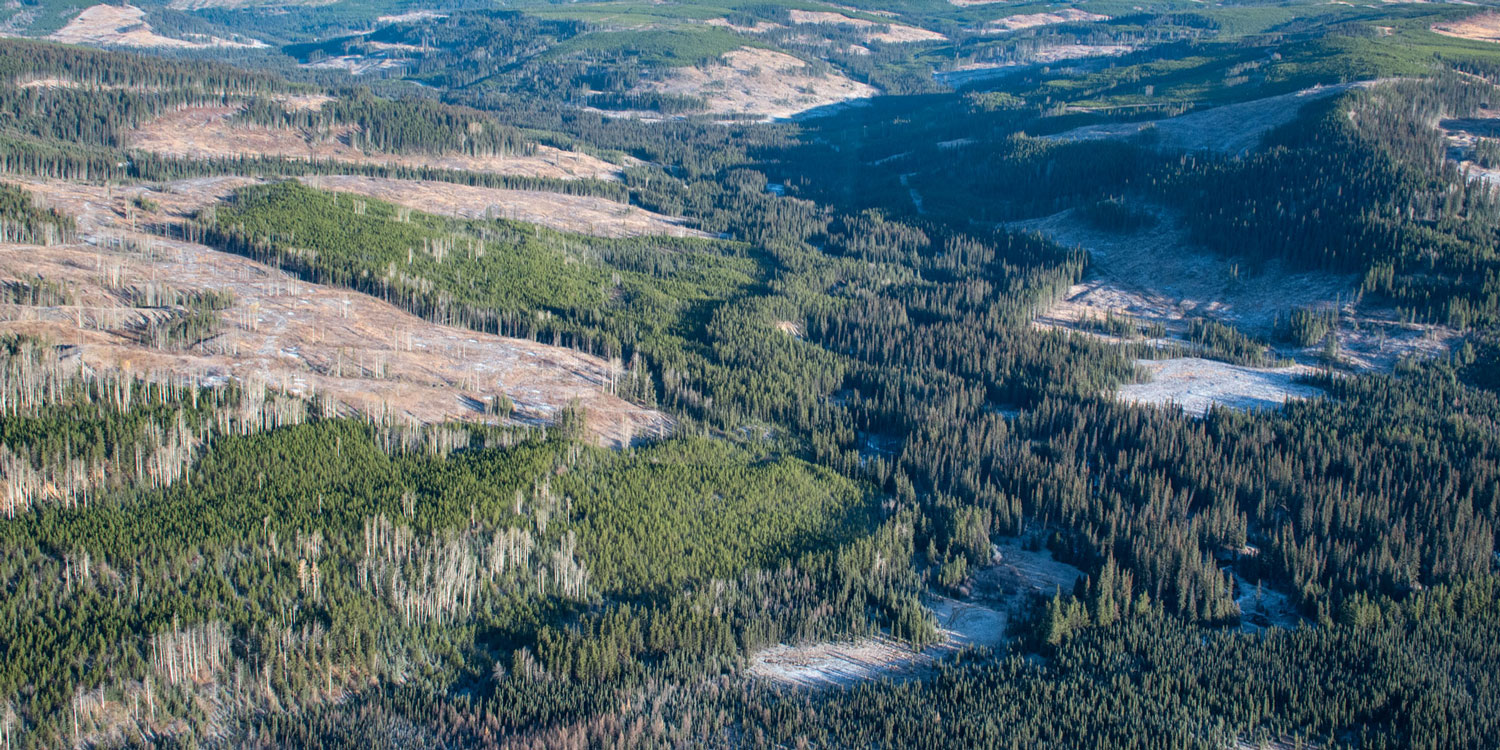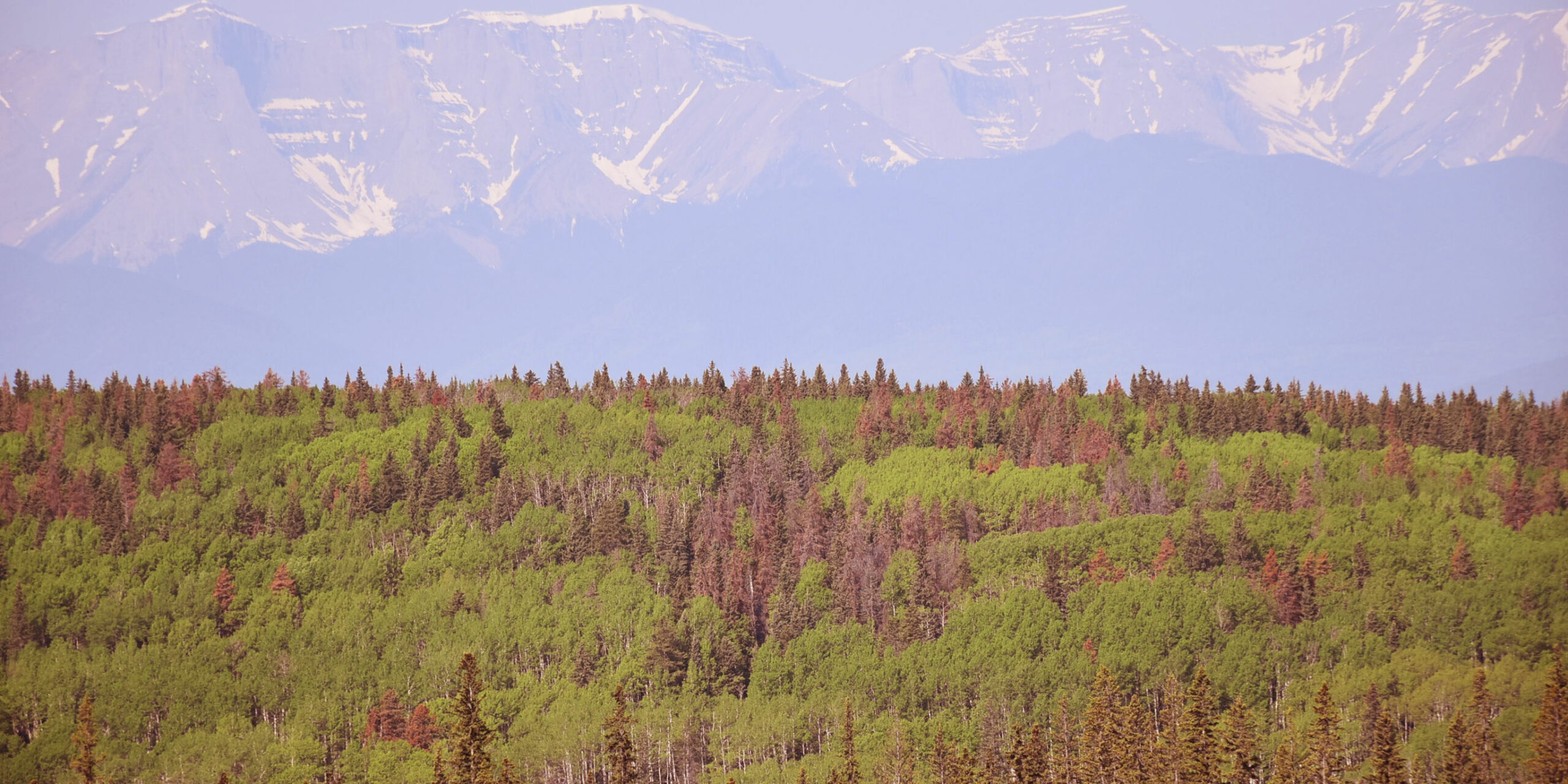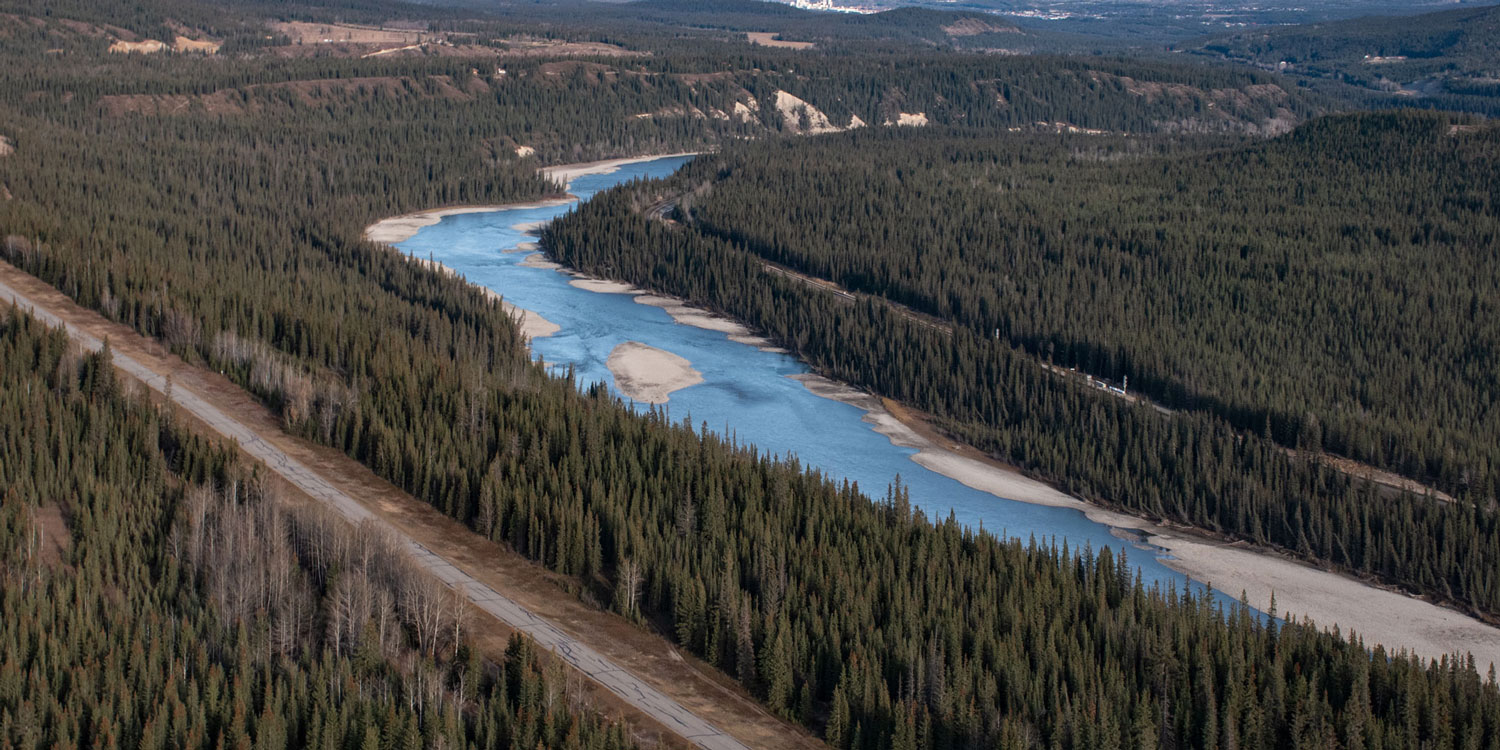
By: Micah Winter
Well, what a shift this was! The Red Earth Creek shift was “interesting”, but our morale was significantly boosted by beautiful weather, a fun campsite, and group activities. After a hasty arrival at the Christina Lake Lodge in Conklin, Alberta, the crew was able to settle into a new campground, work routine, and best of all, a lake.

Christina Lake was the highlight of this shift, especially considering the high temperatures that were sweeping north-eastern Alberta. After spending a day tangled up in ropes, soil probes and mosquitos in 30-degree heat, the field techs were rewarded with refreshment and relaxation by the lake back at camp. We spent our evenings floating, racing, fishing, and even boating on this wonderful body of water. With air mattresses repurposed as rafts, we attempted expeditions to explore the far reaches of Christina Lake. These, however, were cut short by the deceptively large size of the lake and strong winds. On one such adventure, Nikki’s raft, an elegant green blow-up dingy which she brought from home, reached the middle of the lake and promptly sprung a leak, forcing Nikki to make the long swim back to the boat launch (escorted by the rest of the crew piled onto the floating air mattresses, of course).

This shift included the first of many summer birthdays: Solène’s 27th! Celebrated with an afternoon at the lake, a big family dinner, and a chocolate cake topped with edible wildflowers, the group was excited to mark another trip around the sun for their “crew mom”.

The excitement of Solène’s birthday was topped only by more caribou sightings by a few lucky field techs, and… BUSH PROM! The crew thoroughly welcomed this excuse to dress up and dance the night away. Before the dancing began however, there were a series of promposals – picture grandiose romantic gestures of love from one field tech to ask another to be their date. These included one tech going on a scavenger hunt to find their date hidden at the end with flowers, the making of flower crowns, and one clever human even used beer brands to spell out the big question “will you make me the Lucky-est girl in the world and go to Busch prom with me?”, and more. The night itself was filled with an outfit reveal, and a delicious dinner of nachos followed by photo-taking and dancing. The crew felt quite lucky to be able to celebrate Sarah’s first prom with her, as the first had been cancelled a few years back by our favourite friend, Covid-19.

Amid all the reverie, the crew somehow also found time to get into the field and study caribou habitat. The caribou in the region are part of the East Side of the Athabasca River range, which is actually a conglomeration of seven disconnected sub-ranges rather than a single cohesive range. The range, which extends north from Lac La Biche toward Fort McMurray, is highly fragmented due to human development and wildfires and maintains only about 10% undisturbed habitat, according to the most recent estimates. Meanwhile, the caribou population in the area, which had 305 females collared from 1992 to 2017, is believed to be declining. Despite that sobering fact, we spotted several caribou by the roads this shift.

The natural beauty in the area was undeniable. While studying the vegetation in their plots, the field technicians were amazed by the abundance and diversity of carnivorous plants in the area. While tromping through bogs, sundews (Drosera spp; tiny plants with small round leaves covered in sticky hairs which trap any small insects foolish enough to land on them) carpeted the sphagnum moss on which they grew and bladderworts (Utricularia spp; aquatic plants that pull water into bladder-like leaves to catch water fleas) could be pulled from nearly any puddle. The real treat, however, was coming across purple pitcher plants (Sarracenia purpurea) in these wetlands, which seem like they would fit better in a rainforest in Borneo than the boreal forest of northern Alberta. Although, if you consider the hordes of mosquitoes, black flies, deer flies, horse flies and no-see-ums that the field techs had to contend with on a daily basis, then the abundance of carnivorous plants in this area is no surprise.
All in all, the sweaty bog walks this shift were tiring, but evenings at the lake felt like a paid vacation for the field crew. Whether it was due to bog fever, mild heat exhaustion, or simply pure unadulterated joy from experiencing the depths of caribou habitat together, the field tech family finally reached the point in the season when they were all ready to get weird together and embrace the full bush-living lifestyle.

